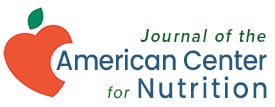Whey vs. Plant-Based Protein for Fitness Goals
Healthy adult bodies require protein to function, and many people boost their dietary protein intake with protein powders and supplements to help them reach their fitness goals. The protein supplement industry targets bodybuilders, athletes, and anyone seeking to shed fat and build muscle mass, but the debate on whey vs. plant-based protein in weight loss and muscle building makes it difficult to choose a supplement.
The human body needs complete proteins to support a healthy metabolic rate and maintain and grow muscle mass [1]. Combined with regular strength training and exercise, protein encourages muscle growth and increases lean body mass [2,3].
Many people understand the importance of protein in repairing and building muscle fibers damaged during exercise, but they struggle to understand the difference between animal and plant-based proteins. How do you decide which type to add to your diet for optimal muscle growth and weight maintenance?
Amino Acid Profile of Whey vs. Plant Protein
The building blocks of protein are called amino acids, and nine essential branched chain amino acids exist that humans must get through their diets [1]. These include:
- Histidine
- Leucine
- Isoleucine
- Lysine
- Phenylalanine
- Methionine
- Tryptophan
- Threonine
- Valine
Complete proteins contain all nine essential amino acids, while incomplete proteins lack one or more. Complete vs. incomplete proteins represent the major difference between whey and plant-based protein. Whey proteins contain all nine essential amino acids, whereas plant-based proteins generally do not.

Does this mean that whey protein is better than plant-based protein? Not necessarily, as you can easily get all nine essential amino acids by combining two or more complementary types of plant proteins. Many plant-based protein supplements offer complete protein formulas by including more than one plant source.
Absorption and Digestibility of Whey vs. Plant Proteins
The source of protein directly impacts how the body digests and absorbs it. Whey proteins come from milk, so they contain lactose and may prove difficult for people with lactose sensitivities to digest. Plant proteins come from other sources, such as hemp, rice, and peas, providing lactose-sensitive people with a viable alternative.
However, plant protein won’t necessarily provide easier digestion than whey protein for every person. For example, pea proteins may cause unpleasant effects, such as cramping and bloating, for people who suffer from irritable bowel syndrome [5].
When it comes to whey vs. plant-based protein in weight loss and muscle building, many people prefer whey protein because it offers a higher biological value and absorbs more quickly into the bloodstream. Still, others will have an easier time digesting plant proteins.
If you struggle with the digestion of one type of protein powder, consider trying an alternative. Track any side effects you experience to determine which type of protein your body will digest and absorb most easily.
If your digestive tract reacts poorly to a protein supplement, the protein source may not be the culprit. Many protein powders available on the market include fillers and additives to improve the taste, but these extra ingredients may cause digestive concerns or interfere with positive muscle growth and weight loss [4].
To get the most out of your protein supplementation, choose a clean powder that boasts the following characteristics:
To find a high-quality protein powder, look for brands with third-party testing, such as NSF’s Certified for Sport® program.
The Pros and Cons of Whey Protein
Whey protein powders come in three varieties: concentrate, isolate, and hydrolysate. Whey protein concentrate formulas include milk solids and between 30 and 90% protein [4]. Whey protein isolates contain at least 90% protein. Fewer milk solids mean less lactose and other compounds that can cause digestive problems and interfere with weight loss [4]. The body digests protein partly through hydrolysis, which breaks down proteins in the small intestine.
Some protein products provide whey protein hydrolysate, which the body can absorb more quickly because the protein has already been partially broken down [4,5].
Advantages of whey protein include:
Disadvantages of whey protein include:
The human body can more readily digest and use whey protein [4].
The Pros and Cons of Plant Protein
Plant-based protein derived from nuts, seeds, legumes, and other sources may not contain all nine essential amino acids, but it does offer the body other vital nutrients that whey protein does not.
Advantages of plant based protein powders include:
Disadvantages of plant based protein powders include:
Prioritize protein powders that provide a full amino acid profile to ensure that your plant-based protein contains all essential amino acids.
Whey Protein vs. Plant Protein for Weight Loss
Whey and plant-based protein both aid in weight loss by inducing feelings of fullness and encouraging the body to maintain lean muscle mass.
When choosing between whey vs. plant-based protein in weight loss and muscle building, many people favor one protein over another. Still, studies show no significant difference between whey and plant protein related to weight loss [7]. Instead, your ideal protein source will depend more on digestive limitations due to allergies and sensitivities.
Tips for Optimal Weight Loss Using Protein Powders
When trying to lose weight, you must maintain a calorie deficit, so the calories you consume often impact fat loss more than the type of protein powder you use [6].
Your protein powder should not contain unnecessary calories through added ingredients; it should only contain protein. Protein powder should also only have no more than 150 calories per serving. Numbers any higher may make it difficult to lose the weight you want.
Mixing protein powder supplements into smoothies can make them more pleasant to eat, but doing this daily can limit fat loss. Smoothie ingredients like milk, peanut butter, and even fruit can add more calories than you burn through exercise. Instead of smoothies, try mixing your protein powder into a bowl of oatmeal or other low-fat food.
Many people trying to lose weight focus on cardio-based exercise, but strength training also helps improve metabolism by increasing the amount of lean muscle mass in the body [2]. Be sure to incorporate lifting and resistance training into your workout routine to get the most out of your efforts.
Finally, avoid using your protein powder supplement as a meal replacement. Although your body needs protein to encourage weight loss, it also needs vitamins and nutrients not found in the typical protein powder. If you supplement meals with protein powders, you may feel hungry more than usual, causing increased snacking and less weight loss.
Whey Protein vs. Plant Protein for Muscle Building
Studies show that increased protein intake paired with strength or resistance training results in increased muscle gains [3,7]. Whey protein isolate (containing limited other ingredients) is often considered the best supplementation option for muscle building because it provides the body with complete proteins that absorb quickly into the bloodstream without interference from additional calories. Most muscle growth supplements include some form of whey protein.
That said, plant-based protein also aids with muscle growth when combined with strength training and resistance exercise. One study found no significant difference between the muscle gains of participants using whey protein supplementation and those using plant protein [7].
Tips for Optimal Muscle Growth Using Protein Powders
The essential amino acid leucine jump-starts the body’s process of building new muscle tissue, making it especially useful for muscle growth [4]. Studies showed a 145% increase in protein synthesis when participants combined exercise with leucine-enriched essential amino acid and carbohydrate intake compared to a 41% increase through exercise alone [8]. When choosing a protein powder for supplementation, look for products containing leucine for the best muscle growth results.
Protein powder should not account for all of your protein while trying to improve muscle size. Your diet should contain other quality protein sources, such as eggs, fish, chicken, and legumes.
Healthy adults who exercise regularly should aim for a daily protein intake of 7 grams per 20 pounds of body weight [1]. For example, if you weigh 180 pounds, you should consume at least 63 grams of protein per day for optimal muscle growth.
The Best Protein for You Depends on Your Goals and Dietary Restrictions
Although the efficacy of whey vs. plant-based protein in weight loss and muscle building remains highly debated in the sports nutrition supplement industry, the ideal protein source for different people depends on their fitness goals and dietary needs. For example, if you suffer from lactose sensitivity, you may opt for a plant-based protein powder, but you may choose whey protein if you struggle with irritable bowel syndrome.
The quality of the supplement and whether or not it contains complete protein will have more of an impact than the protein source. Look for a complete protein powder with few to no added ingredients to find the best option for you.
Finally, you won’t experience weight loss or muscle growth results without combining protein supplements with regular strength training and resistance exercise. Find a high-quality protein powder, and stay active to reach your fitness goals successfully.
REFERENCES
- https://www.hsph.harvard.edu/nutritionsource/what-should-you-eat/protein/
- https://www.ncbi.nlm.nih.gov/pmc/articles/PMC5852756/
- https://www.menshealth.com/fitness/a19527340/protein-and-muscle-gains/
- https://www.mensjournal.com/health-fitness/cleanest-protein-powders-to-buy-whey-and-plant-based-mens-journal/
- https://pubmed.ncbi.nlm.nih.gov/24076059/
- https://www.ncbi.nlm.nih.gov/pmc/articles/PMC6566799/#B5-nutrients-11-01136
- https://www.ncbi.nlm.nih.gov/pmc/articles/PMC6358922/
- https://www.ncbi.nlm.nih.gov/pmc/articles/PMC2706121/

